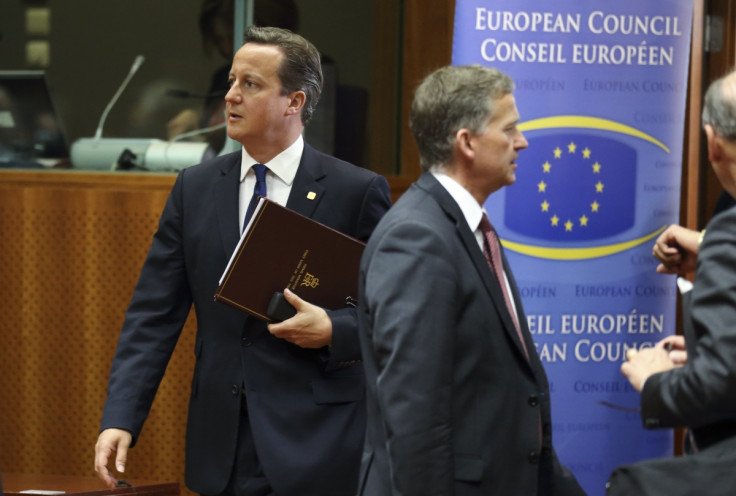EU referendum: What will happen at David Cameron's renegotiation summit in Brussels?

David Cameron will face at least a day of gruelling negotiations with the EU's top brass as he seeks to wrap up his renegotiation deal in Brussels. The British prime minister had previously hailed the draft settlement, tabled by European Council President Donald Tusk in early February, as "substantial".
But Eurosceptics claimed the draft deal had been "watered down" after the document outlined a so-called "emergency migrant break". The mechanism would allow the UK apply to Brussels in a bid to stop giving in-work benefits to EU migrants in Britain for up to four years.
Cameron had originally proposed, as part of his 'big four' measures, an outright ban of the welfare payments for the four-year period without seeking the EU's permission.
Last-minute resistance from the Visegrád Group (made up of the Czech Republic, Hungary, Poland and Slovakia) has also emerged over the PM's plan to stop child benefit being exported abroad. IBTimes UK, using figures from the House of Commons Library, calculated that the payments cost the Treasury around £30m per annum.
However, Cameron is expected to secure a clause to make the EU "more outward-looking, competitive and dynamic", and win an opt-out from the 28-nation-bloc's "ever closer union" principle.
He also apparently has the support of German Chancellor Angela Merkel and French President François Hollande for his reform agenda going into the crunch 18 February talks.
"The negotiations are very advanced and we must make use of the momentum. There will not be a better time for a compromise. It is our unity that gives us strength and we must not lose this. It would be a defeat both for the UK and the EU, but a geopolitical victory for those who seek to divide us," Tusk said ahead of the negotiations.
Vote Leave, one of the groups vying to secure the Electoral Commission's official Brexit campaign designation, claimed the arguments in Brussels will be inconsequential.
"The final deal won't amount to the fundamental change the prime minister promised, won't fix the glaring flaws of the EU and will have no more legal weight than an unsigned contract," argued Dominic Cummings, chief executive of Vote Leave.
Cameron is reportedly hoping to seal a deal so he can announce the EU referendum for 23 June. The latest opinion poll from Ipsos MORI, of almost 500 people between 13 and 16 February, gave 'remain' an 18 point lead over 'leave' (54% versus 36%, respectively).
Schedule for EU renegotiations
15:00 (GMT): Doorstep by Tusk as EU leaders arrive in Brussels
16:00: An "exchange of views" with the European Parliament President Martin Schulz
16:30: A "family photo" with the EU leaders and top civil servants
16:45: First working session on a new settlement for the UK in the EU
19:00: A working dinner to discuss the draft deal
TBC: Press conference hosted by Tusk and the European Commission President Jean-Claude Juncker
19 February
09:00: Informal working breakfast to continue the discussions on the UK (If a deal has not been reached on 18 February)
© Copyright IBTimes 2025. All rights reserved.






















